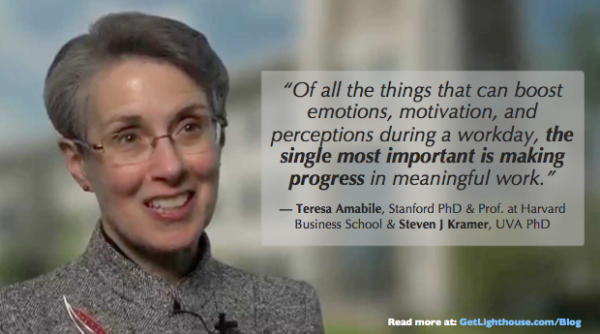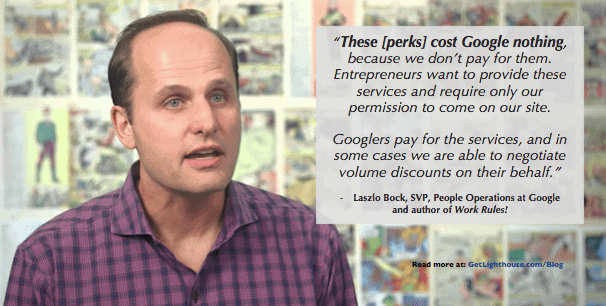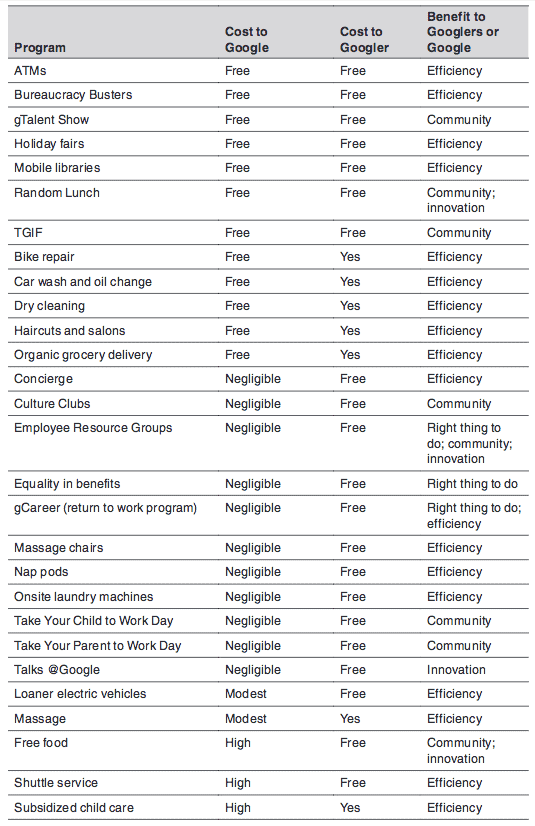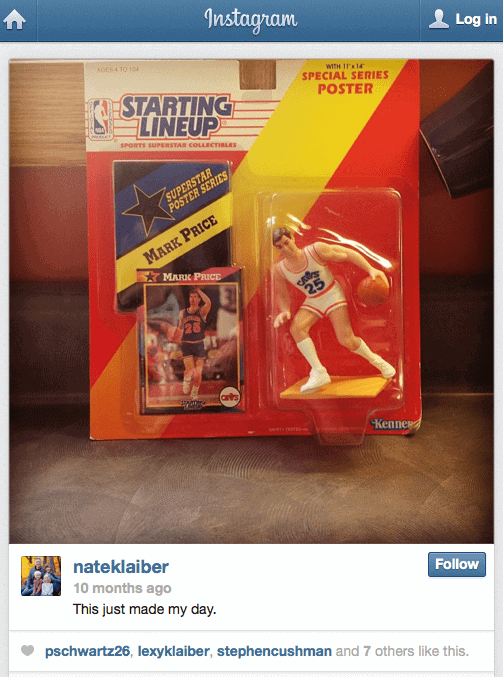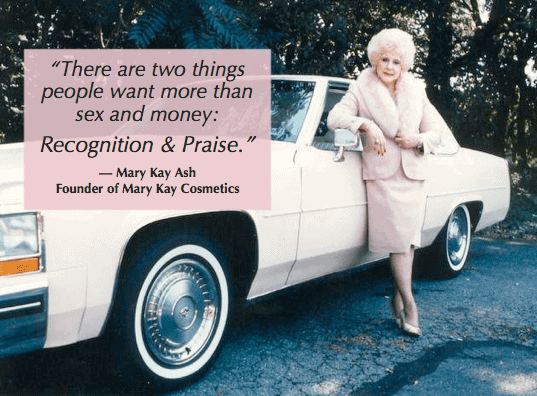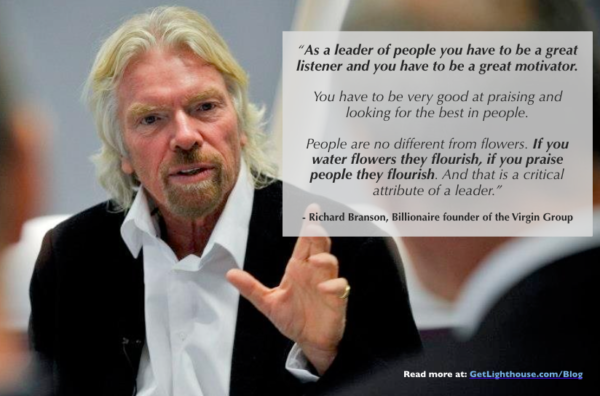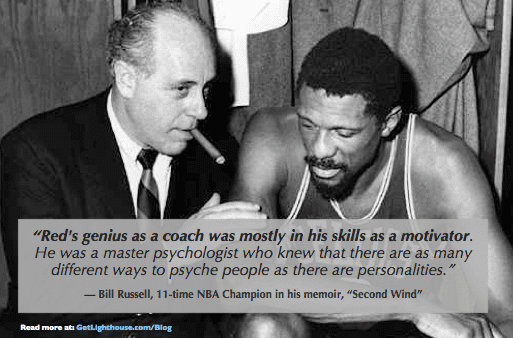We all dream of having an energized team, totally motivated and hitting all their goals. If you're lucky, you may work in such an environment. Congratulations, that comes from hard work by leaders like you.
For the rest of us, the question then becomes how to motivate your team to be more like that. What do you do if you have limited budget, and not much time?
If you're on your own to create such an environment, it can feel daunting.
You can't build an uber-cool, space-ship office like Apple, or make drastic changes to work schedules like Treehouse's 4 day work week. And if you're working remotely, you're not even in the same rooms together!
Fortunately, with a little thoughtfulness and planning, there are quite a few things you can do that will help you learn how to motivate your team, regardless of your situation or location.
How to Motivate Your Team Without Breaking the Bank
One of the first things many people think of when motivating employees is to use the Carrot & Stick approach; threats and financial rewards seem to be the default for many managers.
However, if there's any creativity or innovation to a role, research shows the Carrot & Stick approach doesn't work. In fact, as Dan Pink reports in his book, Drive, it's destructive:
- Leading to increases in unethical behavior as people push to reach required or rewarded milestones.
- An expectation for rewards for any task they're assigned once they start getting rewards.
- Creating short term thinking as they only focus on immediate rewards (similar to addictive behavior, it turns out).
- Reduced risk taking to ensure safely reaching the goal, but missing potential greater gains.
So if a bonus and general carrot & stick approaches are bad, how can you reward or thank people for good work and incentivize the behavior you would like to see? Here's a few ideas how to motivate your team beyond that carrot and stick:
1) Make sure your team makes regular progress
It sounds simple, yet it's both more important than you realize and easier to forget: Progress.
As humans, progress is a deeply meaningful thing. We strive to make progress as a society. We push to make progress through stages in our lives. And at work, we want to make meaningful progress, too.
It turns out, this is literally the #1 thing that drives happiness at work.
Professor Teresa Amabile found in her research reported on the Harvard Business Review that progress was the most important thing in ensuring day to day, and ongoing, happiness at work:
What does progress at work really mean?
Think back on your career. What are some of the happiest and best moments you remember? Likely they include things like:
- A really productive day.
- A big launch with your teammates.
- Figuring out and deploying a fix to a really pesky bug.
- A post your wrote going viral.
- Big wins and pivotal milestones for your team or company.
Notice how all of those are moments of progress?
Now, think about the flip side: What are some of your worst days:
- Feeling stuck on a project that never ends.
- Having changing priorities preventing you from finishing anything you start, and wasting efforts.
- A series of losses for you or your team.
And all of these then are moments you weren't making progress, or even taking steps backward. If that went on long enough, you probably experienced learned helplessness, and maybe even burned out.
Help your team make progress.
If you remember only one thing from this post, it's to recognize how important progress really is for you as a manager.
Helping your team always feel positive progress ensures they'll be motivated and avoid burning out or quitting. Here's a few ways you can do that:
- Remove Blockers: Don't let your team get stuck, especially because of something you did. Remove blockers as much as you can, and if they're still stuck, consider if they can make progress somewhere else while they wait to get unblocked.
- Empower Your Team: One of the best ways to reduce blockers is to be more hands off. Help them understand the desired outcomes and let them figure out the best way to do their work. If you're unsure when to be hands off, and how much to check in, learn about Task Relevant Maturity here.
- Take No One for Granted: The importance of progress impacts everyone, even your best people. No matter how much you trust and can count on a team member, make sure they don't stall out and lack progress, either.
Want to dive deeper into the importance of using progress as a management tool? Read in more detail about helping your team make progress here.
2) Help them grow in their careers
In addition to making progress in their day to day work and projects, it's important to help your team make progress in their careers.
Knowing what we do about the importance of progress, it's not surprising then that multiple studies in recent years have shown that the #1 perk or benefit employees want at work is growth:
1) PwC's study of what attracts Millennials to new jobs (and away from your team):
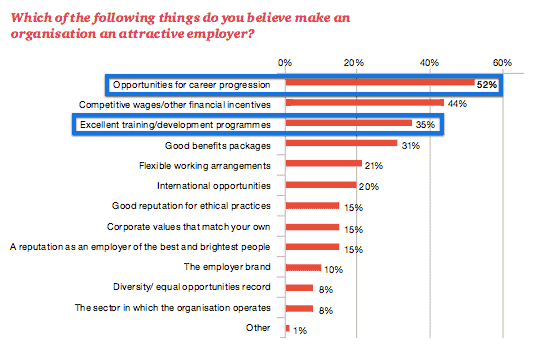
2) Mary Meeker's Internet Trends Report:
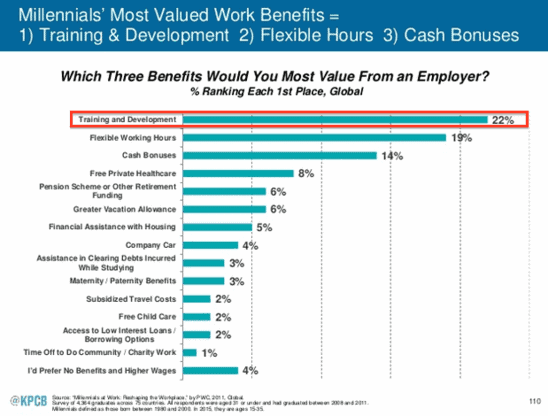
3) Deloitte's Study of Millennials:
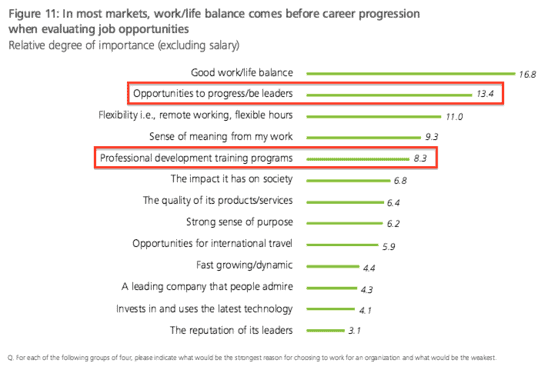
While a key part of career growth is gaining experience in their current role, there is a lot more you can and should be doing to help your team members grow.
Make their career growth a regular conversation
One of the big mistakes I see leaders make over and over again is thinking that talking about someone's career once a year at review time is enough.
Unfortunately, if you do that, there's a pretty good chance that some of your best people will leave after 2-3 years. Because when it comes to your career, if you don't feel like you're making progress, you'll be heavily motivated to seek out a job at another company to feel that progress.
To prevent losing your best people because of a lack of career progress, make it a regular part of your 1 on 1 agendas. This is by far the easiest and best way to help them make career progress for a few reasons:
- It's already on your calendar: It's hard to carve out more time when you have a busy manager's schedule. Take advantage of what you already have set aside.
- They were already the meeting's focus: Given 1 on 1s are focused on your team member, adding a career discussion is an obvious, and welcome, addition.
- You can make continual progress: Since these meetings happen every few weeks, you can take small steps towards their career growth, and keep checking in as often as makes sense.
If you need help starting those conversations, or figuring out what you can do in your situation, these posts can help you:
- Learn how to start career conversations a few different ways with your team: How to help your team achieve their goals.
- Worried you can't promote some (or all) of your team members? Learn how to provide employee development when you can't promote them.
- When your team member isn't sure what their goals are, you can help them figure it out: How to help when your team member can't answer "What are your career goals?”
3) Look for inexpensive (or free) perks
A good perk makes life a little better, or easier, for your team. They demonstrate you care about your people and what's important to them in their day to day life.
While stories of Silicon Valley startups overflowing with perks can make it sound like a costly investment, it's often not as much as you think.
Google was at the forefront of the perks movement, and now offers dozens of perks to their employees. It's easy to assume that they cost Google tons of money, but in fact many are free. As Laszlo Bock, SVP of People Operations at Google, wrote in his book, Work Rules:
You may be thinking, "I don't have 50,000+ employees to use as leverage. I can't do this," but you'd be wrong. As Bock has found, you only need 50 to 100 employees involved to start getting significant volume discounts.
Every perk Google has offered has a benefit, and most have very little cost to them (except for their free food, and their shuttle buses). Here's a list Bock provided in his book to give you some ideas you can try with your company:
Your company probably isn't going to have a list as comprehensive as Google's perks. Instead, consider how one or two that cost little or no money can impact your people in a very a positive way. Small efforts can have a big impact on morale and motivation.
You can learn more lessons from Google's data driven approach to their HR/People department here.
4) Replace bonuses with thoughtfulness
If perks aren't your style, there's still many other options you can try. Whether you have a budget to work with or not, there's some great things you can do to motivate them.
Appreciate them for less than $10
The person who first remarked, "it's the thought that counts" must have been a manager. Your actions are what resonate most with your team.
What are you telling your team with how you turn your thoughts into actions?
One of the simplest things you can do to thank and reward a team member is to give them a thoughtful gift. If you take the time to build rapport, you'll learn what they value and care about beyond work. Those things are then what can lead to an idea for a great, inexpensive gift.
A Story: Mark Price FTW
I worked with an engineer once who was a mega-fan of NBA Hall of Famer, Mark Price. Everyone knew it, because he often wore Price's jersey to standup meetings.
When he went above and beyond to help me out once, I wanted to thank him, but I had no budget to do so. Anything I did would be out of my own pocket, so I got creative.
After some quick Google searching, I found an awesome Mark Price figurine on Ebay for $7. I eagerly bought it, and sent it to them with a note thanking them for their efforts helping me.
Their reaction speaks for itself:
Not only did this instantly improve our working relationship going forward, it's something that meant enough to him, that he still has this on his desk to this day.
When was the last time you made your team feel this way?
[Ed note: You can read the full story and some tips on finding an inexpensive gift like this for your team member here.]
Thoughtfulness beats bonuses
If you have a budget for bonuses for your team, consider how you could better spend them. Rather than giving them cash, which is easily forgotten, think about how you can better invest that money in a thoughtful way.
Turn a bonus into a gift
After hearing the story about the Mark Price gift, a friend who is a CTO at a 250 person startup, tried it with a bonus he was going to give someone. It worked better than he expected, as he told me over a Twitter DM:
Now, every time the engineer uses that MacBook, they will remember who gave it to them.
Unfortunately, people don't remember money in their bank account the same way (though getting sufficient salary is of course important). If you're not rewarding an engineer, a high end MacBook may not be the best option. Fortunately, there are many other things you can do.
Google A/B Tests Rewards
One of the beautiful things about Google is that at their scale, and with their engineering driven culture, they can design and run statistically significant experiments in ways few companies can. Their results have been reported in the New York Times, the Harvard Business Review, and in detail in the book, Work Rules.
When it comes to bonuses, Google wanted to know which made employees happier: cash awards, or thoughtful gifts of the same value (like trips, Google TVs, dinners, and team parties).
As Bock wrote in Work Rules, the results left no doubt:
"Despite telling us they would prefer cash over experiences, the experimental group was happier. Much happier. They thought their awards were 28% more fun, 28% more memorable, and 15% more thoughtful."
And before you think about reasons it won't work in your situation, realize that Google found this was broadly true across all rewards they tested:
"This was true whether the experience was a team trip to Disneyland (it turns out most adults are still kids on the inside) or individual vouchers to do something on their own. And they stayed happier for a longer period of time than Googlers who received money.
When resurveyed five months later, the cash recipients' levels of happiness with their awards had dropped by about 25 percent. The experimental group was even happier about the award than when they received it. The joy of money is fleeting, but memories last forever.”
Whether you are pulling cash out of your pocket for a small gift, or re-purposing money from a bonus, being thoughtful is one of the best ways to approach the question of how to motivate your team.
5) Use recognition and praise
The best way to regularly motivate your team is also the least expensive. All it takes is a little thought and effort on your part.
This quote from Mary Kay Cosmetics founder, Mary Kay Ash, rings so true. If you've ever given genuine, specific praise to a team member for a job well done, you've seen how it makes their day.
The impact of praise
Praise isn't just a warm and fuzzy feeling. There's a measurable impact it has on your team. Research by Gallup found that regular praise significantly improved turnover and productivity:
"[Those answering "strongly agree to] "In the last seven days, I have received recognition or praise for doing good work” is responsible for a 10% to 20% difference in revenue and productivity.
Employees who report that they're not adequately recognized at work are three times more likely to say they'll quit in the next year.”
Are you building a habit of giving regular praise to your team? Or do your people feel unappreciated? Don't starve them of something humans crave so much.
You can learn more about how to give awesome, effective praise here.
Regularly recognize hitting your standards
Every leader has expectations to meet, whether it's to customers, shareholders, or colleagues. To meet those expectations, you have to rally your team to deliver results. One of the best ways to do that is to establish standards, that if met, will make you and your team successful.
It can be tempting to press on to the next project or set of goals as soon as another finishes. Don't do that. Take the time to pause and reflect with your team. Recognize those that met your standards.
Recognize everyone that's earned it
Former financial industry executive, Mark C Crowley, has a simple hack that he used to help motivate his teams to perform regularly in the top 5% of the organization.
Once a month he would meet with them and go over the results of the past month. Everyone who hit their goal was recognized at the start of the meeting.
Crowley used bags of candy like the one pictured above to reward them. He would toss the candy to each person as he called them out and thanked them for their hard work in front of the rest of the team.
This gave every person working hard a brief moment of public recognition. It also gave those that came up short a healthy moment of feeling left out; it gave them something to strive for next month.
Even better, as he rose in the ranks and those he managed were also leaders, the bags of candy were a reward those leaders could take back and share with their teams. This helped the praise spread even further in the organization.
Crowley summarized his approach well in our recent interview of him when he said:
"If you have 30 people working for you and 25 of them met or exceeded the goal, you have to recognize all 25.
A lot of times we go, "Well, it's like the Olympics, we're just going to give gold, silver and bronze.” If you want to destroy the spirit of the other 17 people that met their goals and your expectations, fail to acknowledge them.
People should know that if they meet your expectations and they meet the goals you set for them, that they're going to get acknowledged. "
By consistently recognizing everyone that met his standards, his teams consistently outperformed the others in the organization. A few bags of candy each month were a small price to pay to get top performance.
If you're ready to make praise a key part of your leadership habits, we have a number of posts to help you on that journey:
- Learn how to thank your employees in 5 unique and thoughtful ways
- Find over 20 ways to give praise and be more positive at work here
- Learn 5 ways to give effective praise that motivate your team here
Motivating your team requires more thought than money.
If you're wondering how to motivate your team, the limits are only in your creativity and thoughtfulness.
You don't have to like candy, have a budget for Disney World, or buy figurines on EBay. Find what uniquely fits the culture and values of you and your team and make it a habit.
Pay attention to what each person seems to appreciate most and double down on what's working. Any act of genuine effort and investment will be felt by your team.
Continue learning how to motivate your team:
Here's some further reading on motivation if you're looking for more ideas:
- Take a moment to work on your self awareness, and consider if you may be a cause of low morale on your team.
- Become a more positive leader and your team will be more motivated to work hard for you.
- Learn the 3 keys for motivating your team from this talk from Culture Summit SF


